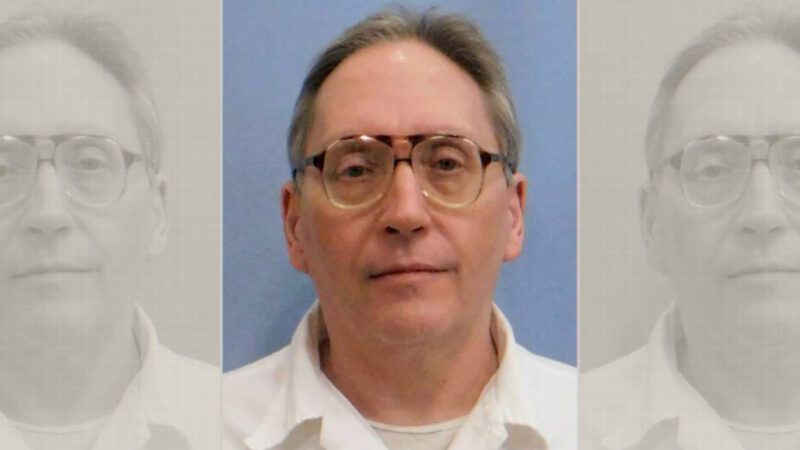Alabama Isn't Ready To Kill Inmates By Nitrogen Hypoxia. It Wants To Try Anyway.
James Barber is set to be killed next month, the first execution after a string of botched lethal injection executions in the state.

Alabama can't decide whether it's ready to execute James Barber.
Barber, a death-row inmate set to be killed on July 20th, has requested to die by nitrogen hypoxia, an as-yet untested execution method approved by the state in 2018. Last month, the U.S. Supreme Court sided with Kenneth Eugene Smith, another Alabama death row inmate who asked to be executed by nitrogen hypoxia, against the state's objections.
While a new execution date for Smith has not been set, officials announced last month that Barber's execution date had been set for summer 2023. Barber was sentenced to death after being convicted for the 2001 beating death of 75-year-old Dorothy Epps.
The state Attorney General's Office requests that the state be legally allowed to execute Barber by nitrogen hypoxia next month; however, the Alabama Department of Corrections insists that the state is not yet ready and needs more time to prepare. The confusion is the latest controversy over the state's execution procedures.
Barber is scheduled to be the first person executed in Alabama since the state's governor imposed a moratorium on executions following a string of botched lethal injection attempts last year. However, Barber wants to die by nitrogen hypoxia—which involves suffocating the inmate in a gas chamber by increasing the proportion of nitrogen in the air—rather than lethal injection, and has asked a federal court to cancel his lethal injection execution so he can be killed by the alternate method. Barber has claimed he wants to die by nitrogen hypoxia because it will be more humane than death by lethal injection, especially considering the state's recent record.
State officials have recently sent mixed messages about Alabama's ability to carry out such an execution. In a court filing responding to Barber's request, the Alabama Attorney General's Office wrote that should the U.S. District Court for the Middle District of Alabama side with Barber, "such an injunction should be limited in scope so as to permit Barber's July 20, 2023, execution to be conducted by nitrogen hypoxia."
However, a spokesperson for the Alabama Department of Corrections (ADOC) clarified in an email to Al.com that the department was not ready to carry out a nitrogen hypoxia execution.
"The Alabama Department of Corrections has completed many of the preparations necessary for conducting executions by nitrogen hypoxia," the spokesperson continued. "The protocol for carrying out executions by this method is not yet complete. Once the nitrogen hypoxia protocol is complete, ADOC personnel will need sufficient time to be thoroughly trained before an execution can be conducted using this method."
The state's conflicting messages make it unclear if Alabama will attempt to kill Barber by nitrogen hypoxia next month, should he win his federal case. However, the state's mixed messages are hardly surprising.
Alabama has displayed a chaotic response following several botched executions last year. While Governor Kay Ivey (R) called for a moratorium on executions in November, pending an investigation into the state's lethal injection procedures, the state did not release its internal audit. ADOC officials made vague promises to increase the number of available staff for executions and rehearse the process. At the same time, Ivey successfully requested the Alabama Supreme Court to allow execution to be attempted over an extended time frame rather than on a specific day, allowing officials to attempt executions for hours or days.


Show Comments (60)